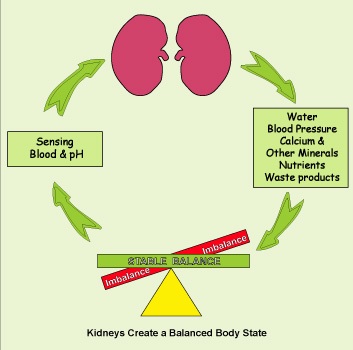Source Sometimes, however, your kidneys don’t function properly. It’s difficult for your kidneys to work correctly when you consume too many medications, processed foods, and preservatives. Additionally, being exposed to high levels of environmental pollution, household cleaning products, and chemical-laden beauty products can be detrimental. When this happens, your body builds up an unhealthy amount of waste and toxins. This is dangerous for you and can cause organ damage.
Signs You Have Too Many Toxins in Your Kidneys
How can you tell when your kidneys have too many toxins? Here are several symptoms you should watch out for:
Change in Urine
Producing urine is one of your kidneys’ primary functions, so pay attention to it! Some of the most obvious signs are in its color and frequency. If you are going to the bathroom less frequently and producing dark yellow urine, it could be a sign of too many toxins. Other symptoms include: difficulty urinating, blood in the urine, foamy urine, or urgency in the middle of the night.
Swollen Feet, Ankles, or Face
Decreased kidney function results in sodium retention. This is when you’re not getting rid of enough sodium, one of the most common toxins. You know you’re retaining sodium if your ankles, feet, or face look swollen.
Feeling Tired or Having Trouble Concentrating
Are you feeling tired lately, but know you’re getting enough sleep? Do you find it hard to concentrate at work or school? This is another sign of too many toxins in your kidneys. Feeling tired or weak is how your body reacts to an overload of waste in your blood.
Skin Rashes
If you’ve noticed an increase in skin irritations or itchy rashes lately, this may be another sign of too many toxins in your kidneys. Skin rashes caused by toxic kidneys cannot usually be treated by creams and lotions because they begin far below the surface of the skin. People who have suffered from these kinds of skin irritations say that they feel “deeper” than regular rashes. Itchy rashes that look like tiny red bumps occur because of too much uric acid in your blood, a sign of toxic kidneys.
Muscle Cramps and Leg Pain
Muscle cramps often happen when your electrolytes are out of balance. When your kidneys are overwhelmed by toxins, you may have low calcium levels or uncontrolled phosphorous in your blood. Both of these conditions cause muscle cramps. Leg pain is another sign of toxic kidneys, particularly if it’s in the back of your legs. Sometimes, this is because of kidney stones or a kidney infection, which may cause lower back pain as well.
How to Reduce the Toxins in Your Kidneys
Eat Organic, Unprocessed Foods
Avoid eating processed foods that are high in chemicals and preservatives. Consuming these products makes your kidneys work overtime. Instead, eat whole foods that are free of pesticides, antibiotics, hormones, and additives.
Reduce Meat and Dairy Consumption
Digesting meat and dairy produces uric acid. Uric acid is one of the toxins that your kidneys must filter and get rid of. Replace these foods with fresh fruits and vegetables. This will increase the alkaline levels in your blood. A blood pH with higher alkaline works to lower your blood pressure, which makes it easier for your kidneys to detox.
Reduce Salt Intake
Salt is another culprit that increases the toxins in your kidneys. Salt can be found in unsuspecting places like pre-packaged, canned, and processed foods. When you consume too much salt, your body needs more water to keep its intercellular fluids in check. Instead of getting rid of water, your body retains it, which increases your blood volume. When this happens, your kidneys have to work harder. If you suspect that you have too many toxins in your kidneys, you can use these tips to jumpstart the detox process [2]. However, you should always contact your doctor to determine a more personalized approach.
